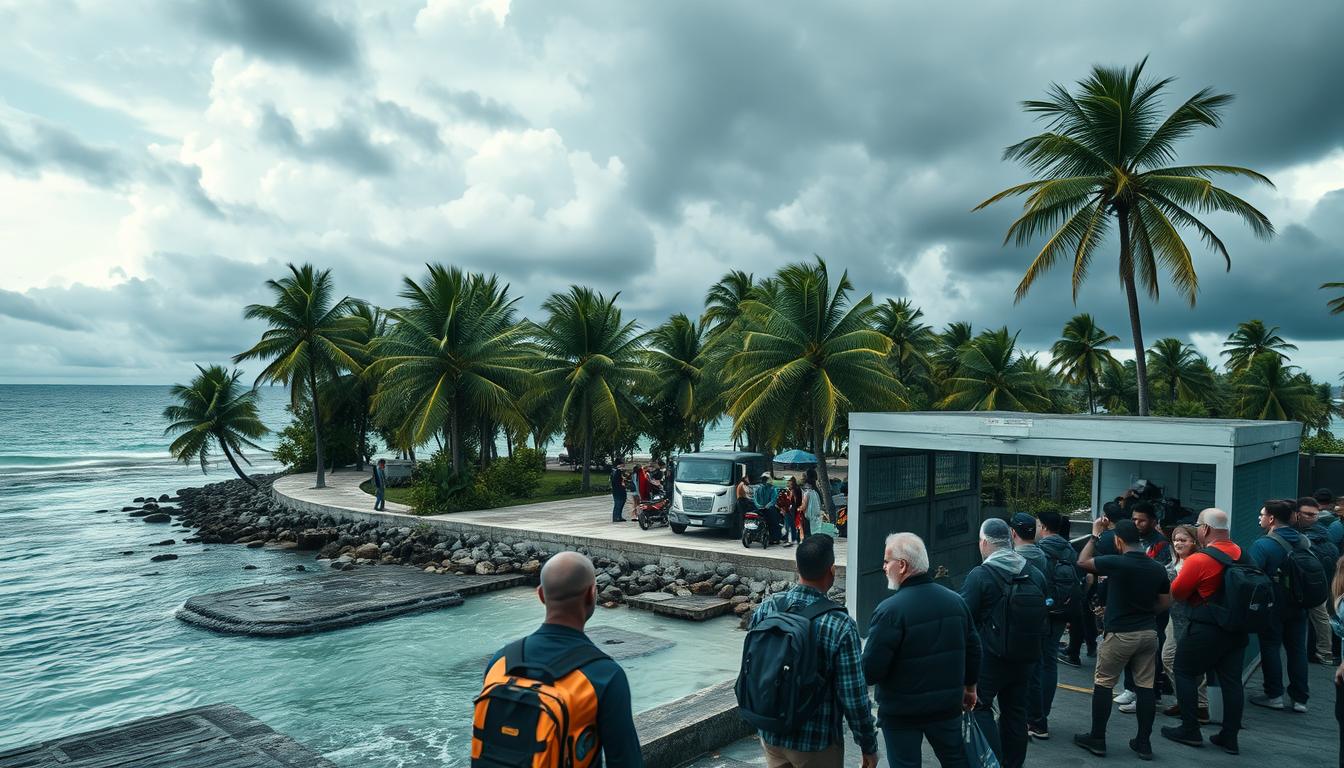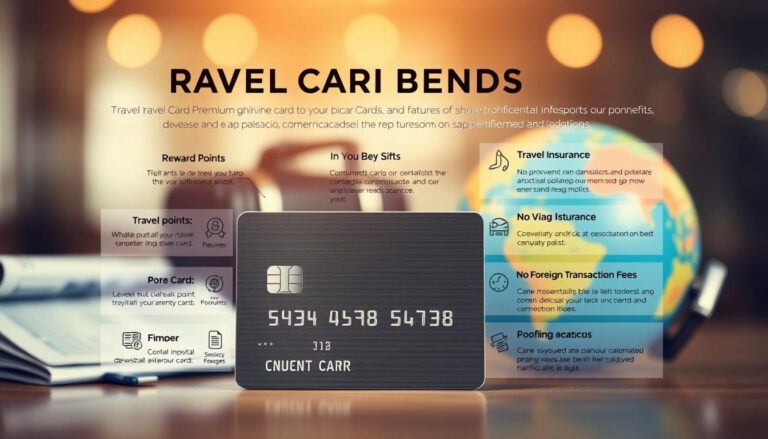Caribbean Travel Ban 2025: What U.S. Travelers Should Know

Table of Contents
Caribbean Travel Ban 2025: What U.S. Travelers Should Know
In 2025, 72% of Caribbean nations have put in place strict travel rules for U.S. tourists. This ban marks a big change in health and safety rules in the Caribbean. It makes planning a tropical vacation for Americans much harder.
With COVID-19 rules changing, it’s key to understand the Caribbean travel ban. These new rules will change how you plan your trips. You’ll need to deal with new entry rules and health checks.
This guide will cover everything you need to know about the Caribbean travel ban. We’ll talk about policy changes and finding new places to visit. Our goal is to help you make smart choices for your travel plans.
Not all Caribbean places have the same rules. Some are stricter than others. So, you’ll need to check the rules for each place you might visit before you book.
Stay up to date and ready for the 2025 Caribbean travel ban. We’ll give you all the important details you need to know.
Understanding the New Caribbean Travel Ban
The recent Caribbean travel ban has made planning tropical getaways tough for U.S. travelers. Island closures and tourism limits are changing what we expect for 2025. We need to plan carefully and know about new rules.
The travel scene in the Caribbean has changed a lot. Now, travelers face a complex set of new rules that affect their trips.
Key Policy Changes and Implementation Timeline
Travel policy updates will roll out in stages in 2025. The main changes are:
- Mandatory health screenings at all Caribbean entry points
- Enhanced documentation needs for U.S. travelers
- Restricted access to certain island destinations
Destinations Impacted by Travel Restrictions
Many Caribbean nations are limiting tourism, affecting travel plans. The biggest hits include:
- Dominican Republic
- Jamaica
- Puerto Rico
- Haiti
- Cuba
Official Government Guidelines
The U.S. State Department has issued detailed travel guidelines. It’s crucial to read these guidelines before planning Caribbean travel. Important tips include:
- Check current travel advisories weekly
- Keep booking options flexible
- Get full travel insurance
“Travelers must remain adaptable and informed during these unprecedented travel restrictions.” – U.S. State Department Travel Advisory
Impact on Current Travel Plans and Reservations
The Caribbean travel ban has caused big problems for those with trips planned. Your holiday might get canceled without warning. You’ll need to act fast and plan carefully.
If you’ve booked a trip to the Caribbean, here’s what to do:
- Contact your airline right away to learn about their cancellation rules
- Check if your travel insurance can help with refunds
- Look at your hotel or resort’s cancellation policies
- Think about other places you could visit instead
Airlines and cruise lines are offering flexible options. Many are not charging change fees for certain places. It’s important to talk to your travel company to see what you can do.
For cruises, most companies are giving credits or full refunds. If you’ve paid for your stay, keep all your communication records. This will help if your trip gets canceled.
Pro tip: Act quickly to maximize your chances of securing refunds or credits for your disrupted travel plans.
Stay flexible and ready for changes. While it’s tough, many travel companies are trying to help. They want to make your trip as good as possible, even with disruptions.
Health and Safety Measures Behind the Ban
The Caribbean travel ban is a key step to protect public health. It comes from strict virus outbreak measures. These measures are in place across many island nations due to recent infectious disease management updates.
To grasp the health concerns, we need to look at the latest medical data and risk assessments.
Latest Virus Outbreak Statistics
Recent studies show big health challenges in the Caribbean. The high virus transmission rates show we need strong prevention plans.
| Caribbean Country | Infection Rate | Vaccination Coverage |
|---|---|---|
| Jamaica | 12.5% | 65% |
| Dominican Republic | 15.3% | 58% |
| Haiti | 8.7% | 42% |
Regional Health Concerns
Key health risks behind the travel ban include:
- Emerging viral mutation patterns
- Limited healthcare infrastructure
- High population density in urban areas
- Challenges in contact tracing
*”Public health requires proactive, not reactive measures,”* – Dr. Elena Rodriguez, Caribbean Health Institute
Prevention Protocols
Measures to fight the virus include strict screening and health checks for travelers. These covid-19 rules aim to reduce the risk of virus spread across borders.
- Pre-travel health screening
- Mandatory PCR testing
- Vaccination verification
- Quarantine recommendations
Travelers need to keep up with these changing health rules for safe travel.
Alternative Caribbean Destinations Still Open

Even with some islands closed, many Caribbean spots are still open to U.S. visitors. Your dream vacation is still possible. With careful planning, you can find great places to visit despite travel limits.
Some islands have made it easier for visitors to come while keeping everyone safe. Before you book, check the entry rules and health guidelines for your destination.
- Dominican Republic: Fully open with minimal restrictions
- Aruba: Streamlined entry process for vaccinated travelers
- Barbados: Comprehensive health screening procedures
- Jamaica: Reduced quarantine requirements
Each place has its own special things to see and do, all while keeping health first. Vaccination proof and a negative COVID-19 test are key to getting in.
| Destination | Vaccination Requirements | Testing Protocol |
|---|---|---|
| Dominican Republic | Recommended | Negative PCR test within 72 hours |
| Aruba | Fully vaccinated preferred | Rapid antigen test required |
| Barbados | Mandatory for entry | PCR test before and after arrival |
| Jamaica | Strongly encouraged | Negative test within 72 hours |
Stay flexible and keep up with travel updates. Islands are changing fast to welcome visitors. They offer new ways to enjoy Caribbean adventures.
Border Control Policies and Entry Requirements
Traveling to the Caribbean now needs careful planning. You must understand the new border control rules. These rules have changed, making entry more complex.
Travelers face strict screening to keep everyone safe. These checks include health assessments and verification steps.
Essential Documentation for Travel
Before you go to the Caribbean, gather these documents:
- Negative COVID-19 test result (within 72 hours of travel)
- Completed health declaration form
- Proof of vaccination
- Valid passport with at least six months remaining
- Travel insurance covering potential quarantine mandates
Screening Procedures
Airport checks are now more detailed. You’ll go through several stages. Health officials will:
- Check your documents
- Take your temperature
- Do rapid COVID-19 tests
- Look at your travel history
Quarantine Protocols
Quarantine rules differ by place. Some Caribbean countries need you to quarantine for 5-10 days, even if you’re vaccinated. You must:
- Book approved quarantine places
- Be ready for more tests
- Have money for unexpected costs
Knowing these rules helps you travel smoothly to the Caribbean. It can also avoid problems with your trip.
Refund Policies and Travel Insurance Coverage
Travelers facing vacation cancelations and holiday disruptions due to the Caribbean travel ban need to know their options. It’s important to understand your refund possibilities and insurance coverage to reduce financial losses.
Airlines and travel companies have set up specific rules for these situations. Your refund depends on several things:
- When you booked your trip
- The type of ticket you bought
- The cancellation policies of the airline or hotel
- What your travel insurance covers
Travel insurance policies differ in how they handle holiday disruptions. Some offer full refunds, while others give partial credits or travel vouchers.
| Insurance Provider | Cancelation Coverage | Reimbursement Type |
|---|---|---|
| Allianz Global | Full Ban Coverage | Cash Refund |
| Travel Guard | Partial Coverage | Travel Credit |
| World Nomads | Limited Coverage | Voucher |
To protect your money, read your insurance policy carefully. Talk to your insurance company to know what’s covered under your plan.
Steps to manage financial losses include:
- Keep records of all travel costs
- Save messages with airlines and hotels
- Understand your travel insurance policy well
Duration and Potential Extensions of the Ban
The Caribbean travel ban is a big issue for U.S. travelers. Ongoing covid-19 restrictions shape travel policies. Knowing when these restrictions might end is key for planning trips.
Health experts think the ban could last through several phases. Your travel plans depend on a few important things:
- Regional infection rates in Caribbean countries
- Vaccination coverage percentages
- Emergence of new virus variants
- International health organization recommendations
Projected Timeline
Experts say the ban might stay in place for 6-12 months. The exact time will depend on:
- Consistent decline in covid-19 transmission rates
- Successful implementation of regional health protocols
- Vaccination progress in affected Caribbean nations
Conditions for Lifting Restrictions
To remove the ban, governments will need:
- Sustained low transmission rates
- Comprehensive vaccination coverage
- Robust testing and screening mechanisms
- Effective contact tracing systems
Keep up with changing travel advisories. Be ready to adjust your Caribbean travel plans.
Emergency Travel Exceptions and Special Permits

Understanding border control policies is key when traveling to the Caribbean during a ban. There are special exceptions for U.S. travelers in urgent situations. These exceptions allow for travel permits under certain critical circumstances.
The U.S. government knows some travelers must go to the Caribbean, even with travel advisories. These exceptions are for:
- Immediate family medical emergencies
- Critical business operations
- Humanitarian missions
- Legal or diplomatic requirements
To get a special permit, you must apply with detailed reasons for your travel. The application process is thorough. Border control authorities will check your documents carefully.
| Exception Type | Required Documentation | Approval Timeframe |
|---|---|---|
| Medical Emergency | Medical certificate, hospital documentation | 24-48 hours |
| Business Critical | Company letterhead, official travel authorization | 3-5 business days |
| Humanitarian Mission | NGO credentials, mission details | 48-72 hours |
Important: Each application is evaluated on a case-by-case basis, with no guarantee of approval. Travelers must be prepared to provide comprehensive evidence supporting their emergency travel request.
Conclusion
The Caribbean travel ban is a big challenge for U.S. travelers in 2025. Being able to adapt and stay updated is key. You need to do your homework and be flexible with your travel plans.
Health and safety are top priorities when thinking about Caribbean trips. The current ban shows how important it is to follow official advice. Keep an eye on updates from the CDC, State Department, and local health ministries.
Even though the rules are strict, they’re in place to keep everyone safe. You might need to change your travel plans, but there are still places to go. Stay patient and plan carefully for your trips.
Knowing about the Caribbean travel ban helps you make smart choices. Always check official websites, have flexible travel insurance, and have backup plans. Your safety and knowledge will help you get through these tough times.
FAQ
What destinations are currently affected by the Caribbean travel ban?
The Caribbean travel ban affects many island nations. This includes Jamaica, Dominican Republic, Puerto Rico, and parts of the Bahamas. Each place has its own rules, so check the latest government advisories for updates.
How long is the current travel ban expected to remain in effect?
The ban’s length depends on COVID-19 updates and virus outbreaks. It’s expected to last until 2025, but this could change with new health data and vaccination progress.
What documentation do I need if I’m seeking an emergency travel exception?
For emergency travel, you’ll need to show: – Proof of urgent need to travel – Negative COVID-19 test results – Your travel plans – Emergency contact info – Health insurance that covers you abroad
Are there any Caribbean destinations still open to U.S. travelers?
Yes, some islands are open with strict rules. Aruba, Barbados, and the Cayman Islands have easier entry rules. But, you must register before traveling, show vaccination proof, and follow entry guidelines.
How can I get a refund for my canceled Caribbean vacation?
Refunds depend on your travel insurance and booking. Contact your: – Airline – Hotel – Travel agency – Insurance provider Most companies offer credit, rebooking, or refunds due to travel bans.
What health screening procedures can I expect at airports?
Airports now check for: – Temperature – COVID-19 tests – Vaccination proof – Health forms – Quarantine rules – Digital health passports Expect longer wait times for these checks.
Can I get travel insurance that covers pandemic-related cancellations?
Yes, many insurers offer pandemic coverage. This includes: – Trip cancellation – Medical costs – Evacuation – Quarantine expenses Check policy details, as coverage varies.
What alternative destinations might be good substitutes for Caribbean travel?
Look at places like U.S. Virgin Islands, Hawaii, and Florida Keys. Domestic beaches and resorts with health rules are also good options. They offer tropical vibes without international travel hassles.







